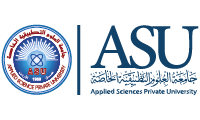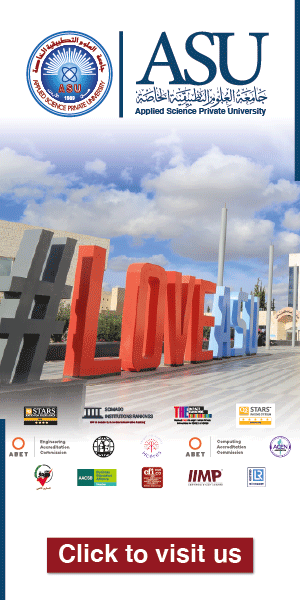
Applied Science Private University in Jordan has a reputation for international partnerships and collaboration, and its global reach continues to grow
The Applied Science Private University (ASU) in Jordan has made internationalisation a top priority in its strategic plan, boasting a longstanding vision of becoming a globally recognised institution. “We want to advance and bring in new experiences to Jordanian universities, to disseminate knowledge from international collaborations to the universities around us and build stronger bonds with them, whether public or private,” explains Iman Basheti, president of the university. Students who take up scholarships at top-ranking global universities come back with connections on “so many levels”, she adds, from new experiences of pedagogy to joint research collaborations or publications.
One of ASU’s key international collaborations is with Massachusetts Institute of Technology. It is part of MIT’s Make Impact Consortium, where students can showcase new ideas and projects that focus on societal concerns. It is also part of MIT’s Mobius programme, which enables students from around the world to exchange ideas via an innovative app. “These are young students with huge capability to move our country forward with their ideas,” Basheti says.
ASU is able to send students and academic staff around the world thanks to a range of international funding sources, including a number of mobility grants from the European Union worth EUR 200,000 (£175,000). “We’ve formulated successful experiences for many of our academics and students, who come back and share their knowledge,” Basheti says. “As a result, the atmosphere has become more international and they’re feeding back many different experiences into the university.” The campus is now home to students from more than 50 countries and there are a number of formal joint research and teaching collaborations in place with institutions such as the University of Sydney, the University of Texas at Austin and Universiti Sains Malaysia.
Eyad Radwan, professor of electrical engineering and president’s assistant for marketing and international relations at ASU, says: “All our programmes are accredited by international bodies and we have a great deal of inbound and outbound student mobility.” Gaining traction in international university rankings is core to sustaining that mobility, he says, because it makes it easier for the university to continue establishing joint programmes and retaining its international culture. This includes working towards Times Higher Education’s Impact Rankings, which look at how universities are embedding the UN’s Sustainable Development Goals into their teaching and operations.
The university has recently established a faculty of dentistry thanks to a number of collaborations with institutions around the world, including the University of Sydney and Ondokuz Mayıs University in Turkey. ASU’s partnership with the University of Sydney has also led to the development of the Applied Science Research Center at ASU, which will have a special focus on public health.
Basheti believes the digital transformation ASU experienced during the pandemic will drive its international progress in future. “We’re connecting other institutions with the resources we have, including virtual access to a cadaver laboratory where surgeons and students can observe operations being performed from anywhere in the world,” Basheti says. “There’s always something new to be done, something to add to our road map.”
Find out more about ASU.











